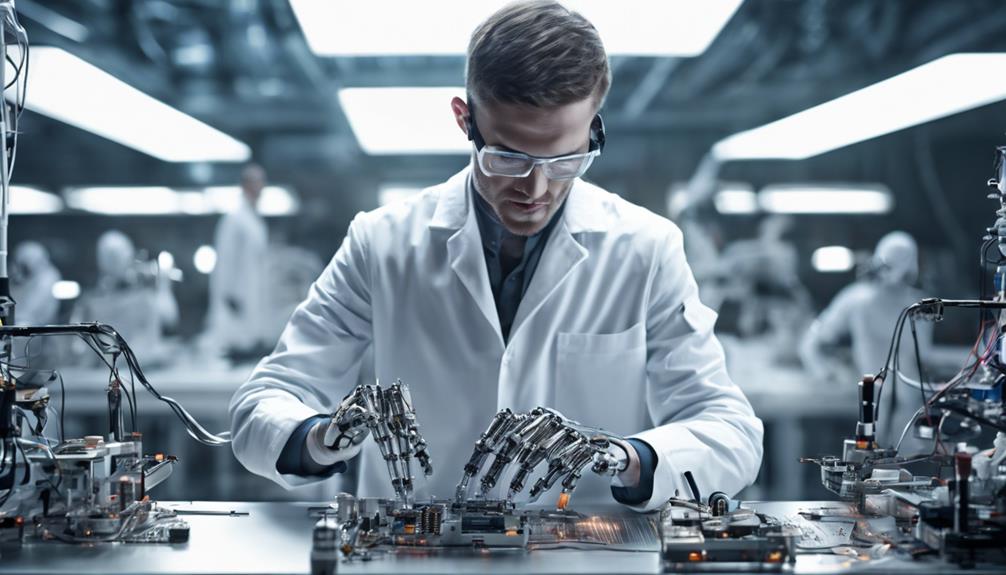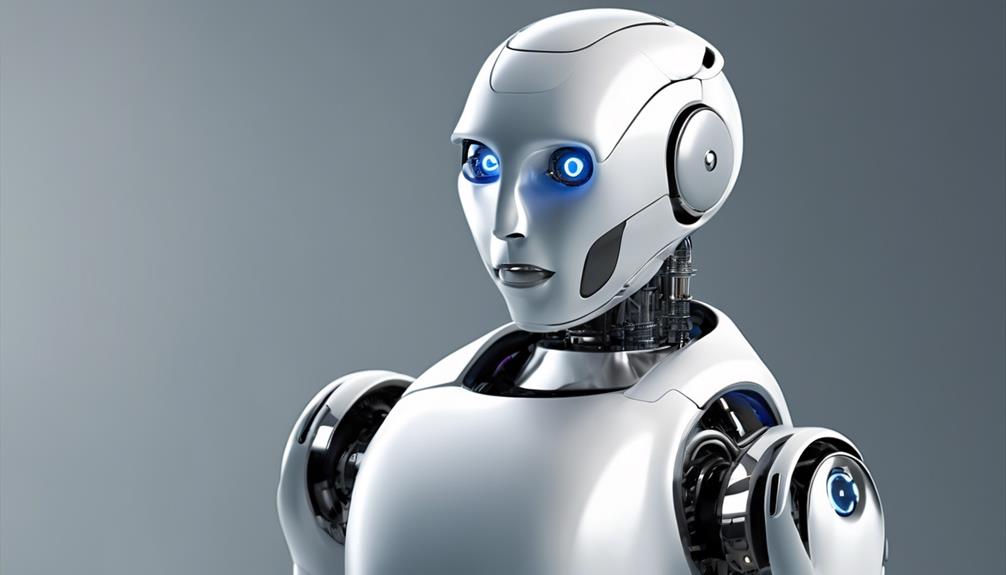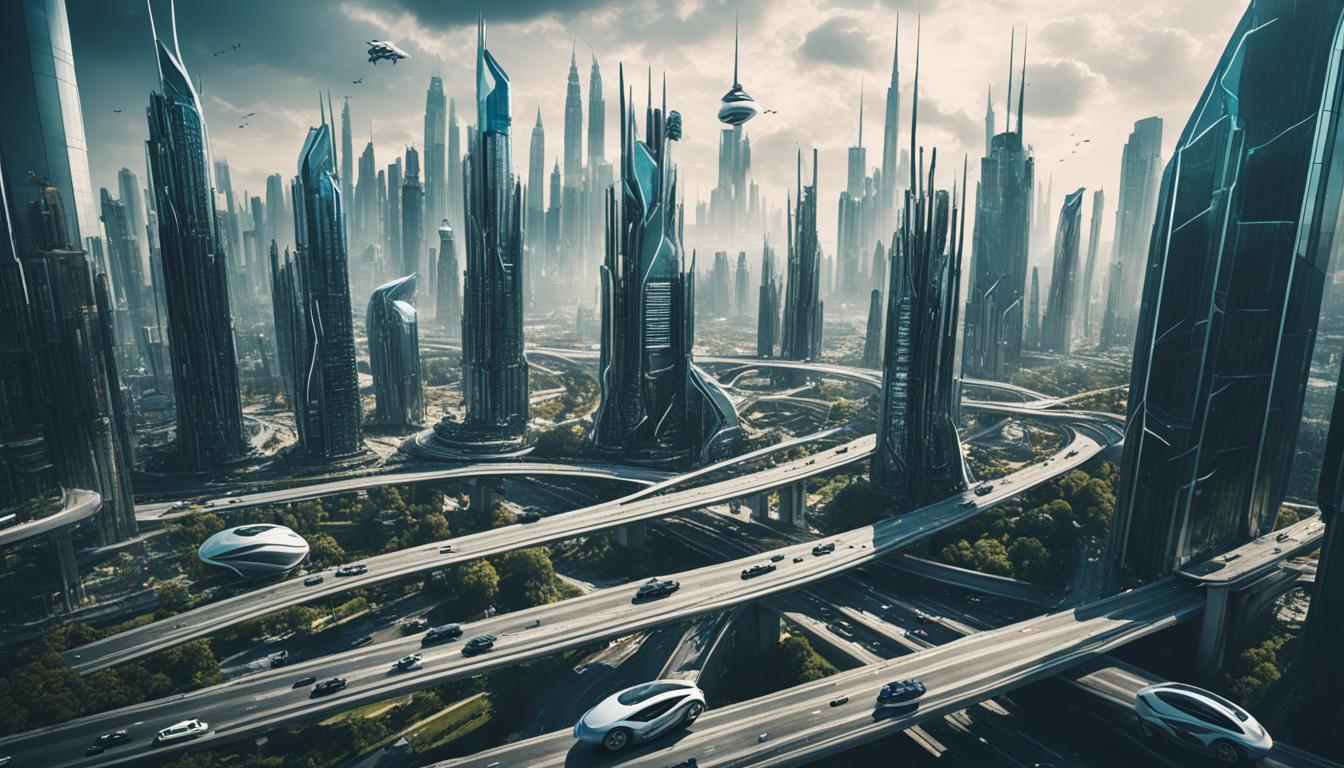As Artificial Intelligence (AI) advances quickly, it is bringing about significant changes in various industries, raising important questions about the impact of this technological revolution.
As AI systems become increasingly sophisticated and capable of performing complex tasks traditionally carried out by humans, concerns about the societal impact and ethical considerations surrounding AI are coming to the forefront.
The dialogue on AI taking over is not just a matter of technological progress but also delves into the realms of ethics, regulations, and the future implications of an AI-dominated world.
Key Takeaways
- AI is revolutionizing industries by automating tasks and reshaping job landscapes.
- Ethical considerations must guide responsible AI development to address societal impacts.
- Job displacement is expected with AI integration, emphasizing the need for human-specific skills.
- Proactive adaptation to AI advancements is crucial for workforce readiness in evolving industries.
The Evolution of Artificial Intelligence
The evolution of artificial intelligence traces back to the foundational developments in core technologies during the 1970s and '80s, setting the stage for the remarkable advancements witnessed in the field. These early breakthroughs paved the way for the integration of AI into various aspects of society, ranging from automation systems to intricate natural language processing algorithms. Noteworthy figures like Elon Musk have recognized the potential of AI, prompting substantial investments from tech giants such as Microsoft, Amazon, and Google. As innovation surged, AI transcended its initial capabilities, with IBM's Deep Blue chess machine defeating the world champion in the 1990s, capturing global attention.
The evolution of AI has not only revolutionized technology but also raised concerns about job loss due to automation systems. Despite these apprehensions, the continuous innovation within the AI domain has reshaped industries, communication channels, and daily interactions with technology. The ongoing evolution of AI underscores its profound impact on society, underscoring the need for responsible development and deployment strategies.
Impact of AI on Industries

Impactful transformations are being witnessed across various industries due to the integration of AI technologies, leading to significant shifts in traditional work processes and job roles.
- AI technologies are replacing traditional workers in industries such as transportation, retail, and military.
- Skilled tasks like translation, legal research, and journalism are being automated by AI.
- Computer-integrated manufacturing is prevalent in automotive, aviation, space, and ship building industries.
- Development of autonomous cars is raising concerns about job loss in the road transport sector.
As AI systems continue to advance, the impact of technology on job sectors is becoming more pronounced. The fear of job loss among human workers is a pressing concern, particularly in industries where automation is rapidly replacing manual labor.
Tech companies and AI researchers are at the forefront of this evolution, with major players like Elon Musk, Microsoft, Amazon, and Google heavily investing in AI applications across various industries. The integration of AI technology is reshaping job landscapes and redefining the future of work in unprecedented ways.
Ethical Considerations in AI Development
With the rise of artificial intelligence leading to significant shifts in job roles and work processes across industries, ethical considerations in AI development have become increasingly crucial to address issues of bias, privacy, transparency, and accountability.
The presence of bias in AI systems is a significant concern as these systems can reflect and perpetuate existing biases present in the data they are trained on, potentially leading to discriminatory outcomes.
Moreover, the lack of transparency in AI algorithms poses challenges in understanding how decisions are made, raising questions about the fairness and accountability of these systems.
Privacy concerns also arise from the collection and use of personal data by AI systems, highlighting the importance of safeguarding individuals' data rights.
Ensuring accountability in AI development is essential to address potential negative impacts on society, emphasizing the need for ethical frameworks and guidelines to govern the use of AI technologies responsibly.
Challenges and Opportunities With AI

Artificial Intelligence presents a myriad of challenges and opportunities that reshape industries and redefine traditional job roles.
- Automation Impact: AI tools are increasingly being adopted in various industries, leading to the automation of repetitive tasks. While this enhances efficiency, it also raises concerns about human jobs being replaced by AI in fields like customer service and finance.
- Creation of New Jobs: Despite the fear of AI automating existing roles, there is also a potential for AI to create new job opportunities. Tasks that require human characteristics like creativity and emotional intelligence are less likely to be automated, leading to the emergence of new roles that complement AI technologies.
- Mental Health Considerations: The widespread adoption of AI and automation can have implications on mental health, especially for individuals whose jobs are at risk of being replaced. It is crucial for organizations to address these concerns and support employees through potential job transitions.
- Augmented Roles: AI augments human capabilities by simplifying tasks and enhancing productivity in various fields such as healthcare and customer service, ultimately leading to the evolution of job roles towards more complex and fulfilling tasks.
Future Implications of AI
The integration of AI across industries is poised to fundamentally alter the landscape of employment dynamics, prompting a reassessment of traditional job structures and skill requirements. The future implications of AI automation suggest significant job displacement and shifts in the job market due to automation risk.
Industries such as healthcare, agriculture, and industrial sectors are expected to experience job automation, leading to disruptions in hiring practices and skill demands. Certain occupations like customer service representatives, drivers, programmers, analysts, and paralegals are at higher risk of being replaced by AI, whereas roles requiring physical skills or creativity are less susceptible.
Human-specific capabilities are likely to become increasingly valuable in the job market as AI takes over routine tasks, emphasizing the need for individuals to develop unique skills that are not easily replicable by artificial intelligence. As AI continues to advance, the job market disruptions will require proactive adaptation to ensure a workforce equipped to thrive in a rapidly evolving technological landscape.
Frequently Asked Questions
Are We Going to Be Taken Over by Ai?
The question of AI taking over elicits concerns about automation's impact on various industries and jobs. While AI can streamline processes and enhance efficiency, its integration must be carefully managed to ensure a balanced workforce ecosystem.
Will AI Takeover Humans?
The potential for AI to surpass human control and dominate society raises valid concerns. As technology advances, ethical considerations and regulatory frameworks are essential to mitigate risks. Collaboration between experts and policymakers is crucial.
How Long Do We Have Until AI Takes Over?
The timeline for AI's potential dominance remains uncertain, subject to rapid advancements, research investments, and technological breakthroughs. Continuous monitoring and regulation are crucial to manage risks and ensure responsible AI development, mitigating unchecked takeover scenarios.
What Did Elon Musk Say About AI Taking Over?
Elon Musk emphasized the need for caution and regulation in AI development to avert potential risks. He warned of AI surpassing human intelligence and advocated for proactive measures to ensure its responsible advancement.
Conclusion
In conclusion, as artificial intelligence continues to evolve and impact various industries, it is crucial to consider the ethical implications and potential risks associated with its development.
The question remains: how can we ensure responsible AI research and regulation to harness its benefits while mitigating possible negative consequences?
This ongoing debate underscores the need for continued oversight and collaboration to navigate the complexities of AI innovation in a rapidly changing world.
Ava combines her extensive experience in the press industry with a profound understanding of artificial intelligence to deliver news stories that are not only timely but also deeply informed by the technological undercurrents shaping our world. Her keen eye for the societal impacts of AI innovations enables Press Report to provide nuanced coverage of technology-related developments, highlighting their broader implications for readers.










